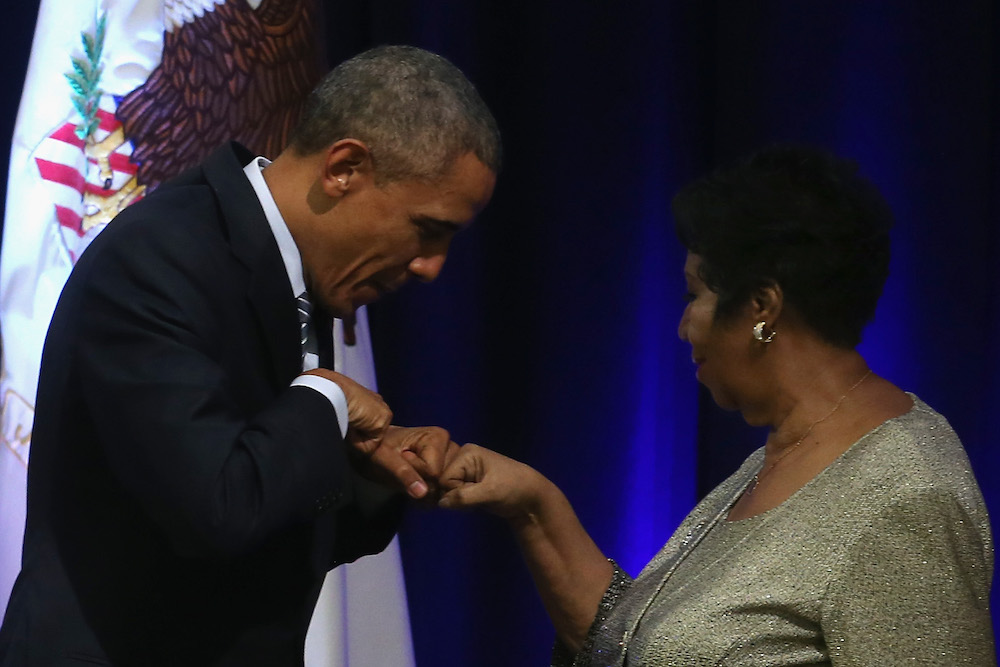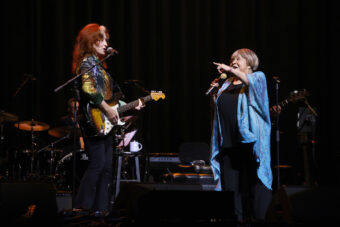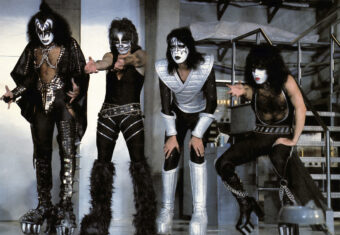Two years before her death, Aretha Franklin was the subject of a reverent profile by New Yorker editor David Remnick. The piece is filled with insight about her impact and upbringing. (We learn that she is so wary of the music industry, with its record of ripping off black artists, that she accepts only cash as payment.) It also includes a remarkable quote from then-president Barack Obama, whom Remnick emailed with a question about Franklin’s legacy. The quote is worth revisiting in full:
“Nobody embodies more fully the connection between the African-American spiritual, the blues, R. & B., rock and roll—the way that hardship and sorrow were transformed into something full of beauty and vitality and hope,” he wrote back, through his press secretary. “American history wells up when Aretha sings. That’s why, when she sits down at a piano and sings ‘A Natural Woman,’ she can move me to tears—the same way that Ray Charles’s version of ‘America the Beautiful’ will always be in my view the most patriotic piece of music ever performed—because it captures the fullness of the American experience, the view from the bottom as well as the top, the good and the bad, and the possibility of synthesis, reconciliation, transcendence.”
This, frankly, is better writing about music than most music writers are capable of: perfectly capturing the way Franklin’s voice entwines struggle and salvation, and situating that quality within the history of American music and society.
Remnick quotes Obama once more, later in the piece:

Also Read
The Best Boxed Sets Of 2023
“You can hear Aretha’s influence across the landscape of American music, no matter the genre,” Obama wrote me. “What other artist had that kind of impact? Dylan. Maybe Stevie, Ray Charles. The Beatles and the Stones—but, of course, they’re imports. The jazz giants like Armstrong. But it’s a short list. And if I’m stranded on a desert island, and have ten records to take, I know she’s in the collection. For she’ll remind me of my humanity. What’s essential in all of us. And she just sounds so damn good. Here’s a tip: when you’re deejaying a party, open with ‘Rock Steady.’ ”
The 44th president had a deep connection with Franklin’s music. She sang at his first inauguration, of course, giving a stirring gospel-inflected rendition of “My Country ‘Tis of Thee.” Franklin has said that she was unhappy with the performance, telling Larry King the following day that the bitter cold weather affected her voice. (As a face in the crowd on that brutal February day, I can tell you that standing on two feet sometimes felt like a challenge, to say nothing of trying to sing like her.)
Perhaps the better Obama-era performance to remember Franklin by, then, is her triumphant appearance at the 2015 Kennedy Center Honors.
https://youtube.com/watch?v=XHsnZT7Z2yQ
Franklin sings “(You Make Me Feel Like) A Natural Woman,” written for her by Kennedy honoree Carole King with her then-husband Gerry Goffin in 1967. Barack and Michelle Obama sit in the balcony next to King. The songwriter’s response to Franklin is instant and apparently overpowering, kinetically mirroring the singer’s raptrous highs and earthly lows. Franklin sits at the piano and pounds out the song’s bluesy introduction; King’s mouth falls open. Franklin leaps unexpectedly to an aching high register to finish the second verse; King shivers, her eyes seem to roll back, she covers her face with her hands. The president’s reaction, at least what the cameras show of it, is more physically subdued. Early on, he wipes a tear from his face. In a later chorus, as Franklin slides way behind the beat, enacting ecstasy and abandon but always fully in control, he tries to sing along for a few words. He gives up soon enough, shaking his head as if in disbelief of what he’s hearing.
Whether she’s singing love songs, civil rights anthems, or paeans to heaven, Franklin shows us the depths of pain and unkindness in our past and present, as well as the grace and resilience of spirit that might someday lead us forward. She is more than a once-in-a-generation talent; she is the kind of artist who might come along once in the history of a nation, and only if that nation is tremendously lucky. It’s clear that Obama understood that, both from his writing and from watching him in the audience when she sang. As for the queen herself, she called the Kennedy Center concert “one of the three or four greatest nights of my life.”




